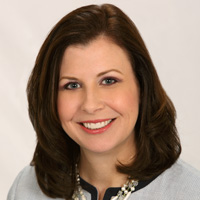Four Tips for Dealing With Life-Altering Health Conditions
Plenty of health conditions can change your life, even when they’re not terminal. Making appropriate adjustments can help you age in place longer.


Profit and prosper with the best of Kiplinger's advice on investing, taxes, retirement, personal finance and much more. Delivered daily. Enter your email in the box and click Sign Me Up.
You are now subscribed
Your newsletter sign-up was successful
Want to add more newsletters?

Delivered daily
Kiplinger Today
Profit and prosper with the best of Kiplinger's advice on investing, taxes, retirement, personal finance and much more delivered daily. Smart money moves start here.

Sent five days a week
Kiplinger A Step Ahead
Get practical help to make better financial decisions in your everyday life, from spending to savings on top deals.

Delivered daily
Kiplinger Closing Bell
Get today's biggest financial and investing headlines delivered to your inbox every day the U.S. stock market is open.

Sent twice a week
Kiplinger Adviser Intel
Financial pros across the country share best practices and fresh tactics to preserve and grow your wealth.

Delivered weekly
Kiplinger Tax Tips
Trim your federal and state tax bills with practical tax-planning and tax-cutting strategies.

Sent twice a week
Kiplinger Retirement Tips
Your twice-a-week guide to planning and enjoying a financially secure and richly rewarding retirement

Sent bimonthly.
Kiplinger Adviser Angle
Insights for advisers, wealth managers and other financial professionals.

Sent twice a week
Kiplinger Investing Weekly
Your twice-a-week roundup of promising stocks, funds, companies and industries you should consider, ones you should avoid, and why.

Sent weekly for six weeks
Kiplinger Invest for Retirement
Your step-by-step six-part series on how to invest for retirement, from devising a successful strategy to exactly which investments to choose.
“But other than that, I am in perfect health!” I heard these words from my 95-year-old grandmother when I called her recently. She is, in fact, in remarkably good health for her age, but her diagnosis of macular degeneration about 20 years ago and her acute hearing loss have dramatically changed how she now lives her life. She lived independently into her 80s, but when she began to experience more issues with her vision, our family knew we would need to make some adjustments and plan for her care in the future.
According to Johns Hopkins Medicine, low vision and blindness are the leading causes of disability in the United States. Nearly 500,000 people were diagnosed with low vision this year, and a recent JAMA Ophthalmology study reports that low vision and blindness are expected to double in the next 30 years, with 2.3 million people expected to be blind and more than 9.5 million living with low vision.
What do you do when you or a loved one are diagnosed with a health condition — such as low vision, severe hearing loss or a physical impairment — that is not terminal but can dramatically alter the way life is lived in the future? Not surprisingly, making changes in your physical environment are usually involved, but changes to your financial plan may also be necessary to properly manage a long-term chronic health condition or expected diminished physical capabilities.
From just $107.88 $24.99 for Kiplinger Personal Finance
Become a smarter, better informed investor. Subscribe from just $107.88 $24.99, plus get up to 4 Special Issues

Sign up for Kiplinger’s Free Newsletters
Profit and prosper with the best of expert advice on investing, taxes, retirement, personal finance and more - straight to your e-mail.
Profit and prosper with the best of expert advice - straight to your e-mail.
Whether it’s planning for future in-home care services or working together as a family to prepare and budget for long-term health care costs, creating an updated financial plan is a critical component of managing long-term health conditions.
1. Look for resources.
For many conditions, there may be aid available that can be used to help improve or cope with limitations. To help my grandmother, we found a low-vision specialist in her community who outfitted her with high-magnification glasses and ordered a table-top magnification device, along with a very bright desk lamp, that allowed her to continue to both manage her own bills and read books for several years.
After reading became too challenging, she turned to audiobooks available from the public library. We worked on her budget to accommodate the cost of the glasses and devices, which were not covered by insurance, but improved her worsening vision for an extended period and were worth the added costs.
2. Make living spaces safer.
The biggest risk to my grandmother was that she might fall if she couldn’t see something on the floor or ran into something in her way. We looked at the most frequent pathways she walked between rooms in her home and realized that a decorative half wall in her entry was a hazard.
We hired a contractor to remove the half wall and replace the flooring to remove the obstacle and give her more space to walk. Again, it was an additional expense, but it made it possible for her to be safer in her home.
3. Adjust lifestyle expenses.
It was clear that it was not wise for my grandmother to be driving, so we sold her car and used the funds in her budget that she had earmarked for auto maintenance and gas to be used instead for rideshare services to maintain her independence for spontaneous trips and connected her with the community senior center bus service for planned outings with friends.
4. Modify timelines and expected costs for future care.
My family knew that it was highly likely that my grandmother would require skilled care at some point. When her vision limitations began to surface, we adjusted our plan from having her move to a live-in health care setting in the future to implementing in-home assistance right away. We started with having a caregiver come a few times a week to help with general household tasks like grocery shopping, cooking and laundry.
After my grandmother started to have trouble navigating her home in the evenings due to lower light levels, we had a family meeting, and she decided to move in with one of my uncles. She is still fairly independent and is able to handle her own personal care, such as getting dressed and eating, but simply having other people in the house with her makes the situation safer and easier for her.
When she can’t handle her personal care any longer, we plan to have her move to an assisted living facility and will use the money she is saving by living with my uncle to help fund those future costs.
A health diagnosis that is life altering can be difficult to accept at first, but with careful financial planning and research on what alternatives may be helpful to enhance your lifestyle and needs, you can make the best of the situation. Your financial adviser can be a valuable resource as you make any transitions needed.
Kara Duckworth is a CERTIFIED FINANCIAL PLANNER™ professional at Mercer Advisors. The opinions expressed by the author are her own and are not intended to serve as specific financial, accounting, or tax advice. They reflect the judgment of the author as of the date of publication and are subject to change. The information is believed to be accurate but is not guaranteed or warranted by Mercer Advisors. Mercer Global Advisors Inc. is registered with the Securities and Exchange Commission and delivers all investment-related services. Mercer Advisors Inc. is a parent company of Mercer Global Advisors Inc. and is not involved with investment services.
Related Content
- What Gen X Needs to Know About Their Aging Parents' Finances
- No Long-Term Care Plan? Here’s What to Do About It
- Long-Term Care Insurance Quandary: Keep Paying or Let It Go?
- Are You Afraid to Retire Even Though You Can Afford To?
- Financial Planning Now That Your New Baby Has Arrived
Profit and prosper with the best of Kiplinger's advice on investing, taxes, retirement, personal finance and much more. Delivered daily. Enter your email in the box and click Sign Me Up.

Kara Duckworth is the Managing Director of Client Experience at Mercer Advisors and also leads the company’s InvestHERs program, focused on providing financial planning to serve the specific needs of women. She is a CERTIFIED FINANCIAL PLANNER and Certified Divorce Financial Analyst®. She is a frequent public speaker on financial planning topics and has been quoted in numerous industry publications.
-
 7 Frugal Habits to Keep Even When You're Rich
7 Frugal Habits to Keep Even When You're RichSome frugal habits are worth it, no matter what tax bracket you're in.
-
 Why Picking a Retirement Age Feels Impossible (and How to Finally Decide)
Why Picking a Retirement Age Feels Impossible (and How to Finally Decide)Struggling with picking a date? Experts explain how to get out of your head and retire on your own terms.
-
 The Best Precious Metals ETFs to Buy in 2026
The Best Precious Metals ETFs to Buy in 2026Precious metals ETFs provide a hedge against monetary debasement and exposure to industrial-related tailwinds from emerging markets.
-
 For the 2% Club, the Guardrails Approach and the 4% Rule Do Not Work: Here's What Works Instead
For the 2% Club, the Guardrails Approach and the 4% Rule Do Not Work: Here's What Works InsteadFor retirees with a pension, traditional withdrawal rules could be too restrictive. You need a tailored income plan that is much more flexible and realistic.
-
 Retiring Next Year? Now Is the Time to Start Designing What Your Retirement Will Look Like
Retiring Next Year? Now Is the Time to Start Designing What Your Retirement Will Look LikeThis is when you should be shifting your focus from growing your portfolio to designing an income and tax strategy that aligns your resources with your purpose.
-
 I'm a Financial Planner: This Layered Approach for Your Retirement Money Can Help Lower Your Stress
I'm a Financial Planner: This Layered Approach for Your Retirement Money Can Help Lower Your StressTo be confident about retirement, consider building a safety net by dividing assets into distinct layers and establishing a regular review process. Here's how.
-
 The 4 Estate Planning Documents Every High-Net-Worth Family Needs (Not Just a Will)
The 4 Estate Planning Documents Every High-Net-Worth Family Needs (Not Just a Will)The key to successful estate planning for HNW families isn't just drafting these four documents, but ensuring they're current and immediately accessible.
-
 Love and Legacy: What Couples Rarely Talk About (But Should)
Love and Legacy: What Couples Rarely Talk About (But Should)Couples who talk openly about finances, including estate planning, are more likely to head into retirement joyfully. How can you get the conversation going?
-
 How to Get the Fair Value for Your Shares When You Are in the Minority Vote on a Sale of Substantially All Corporate Assets
How to Get the Fair Value for Your Shares When You Are in the Minority Vote on a Sale of Substantially All Corporate AssetsWhen a sale of substantially all corporate assets is approved by majority vote, shareholders on the losing side of the vote should understand their rights.
-
 How to Add a Pet Trust to Your Estate Plan: Don't Leave Your Best Friend to Chance
How to Add a Pet Trust to Your Estate Plan: Don't Leave Your Best Friend to ChanceAdding a pet trust to your estate plan can ensure your pets are properly looked after when you're no longer able to care for them. This is how to go about it.
-
 Want to Avoid Leaving Chaos in Your Wake? Don't Leave Behind an Outdated Estate Plan
Want to Avoid Leaving Chaos in Your Wake? Don't Leave Behind an Outdated Estate PlanAn outdated or incomplete estate plan could cause confusion for those handling your affairs at a difficult time. This guide highlights what to update and when.